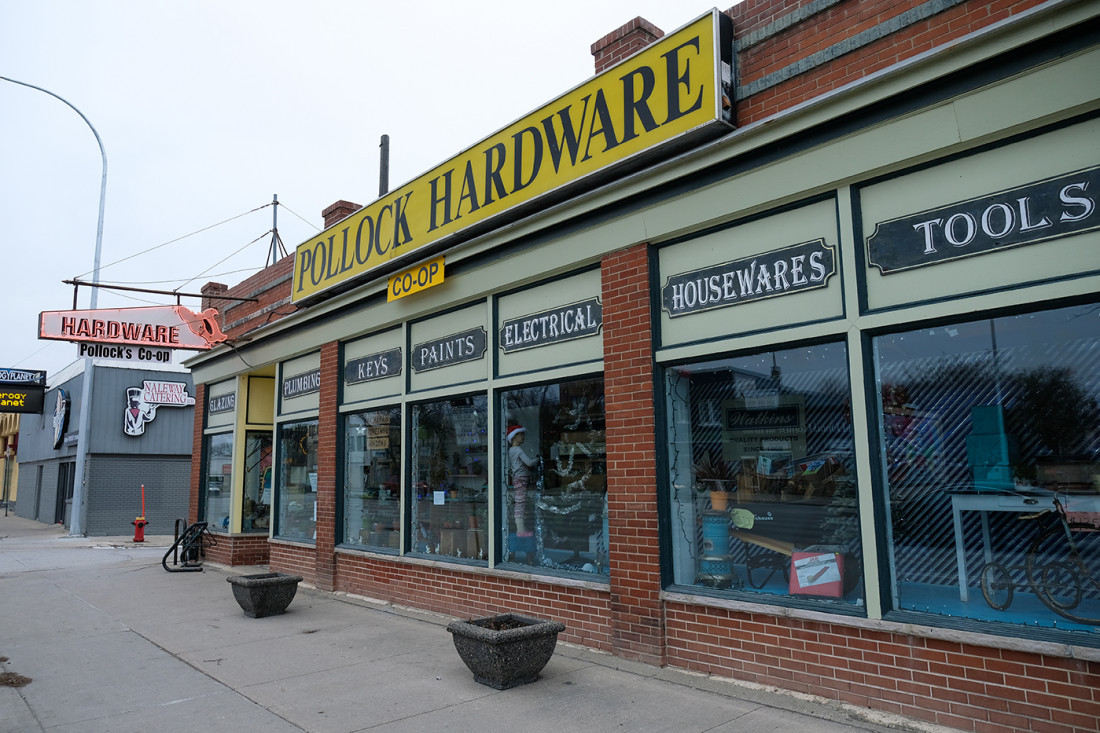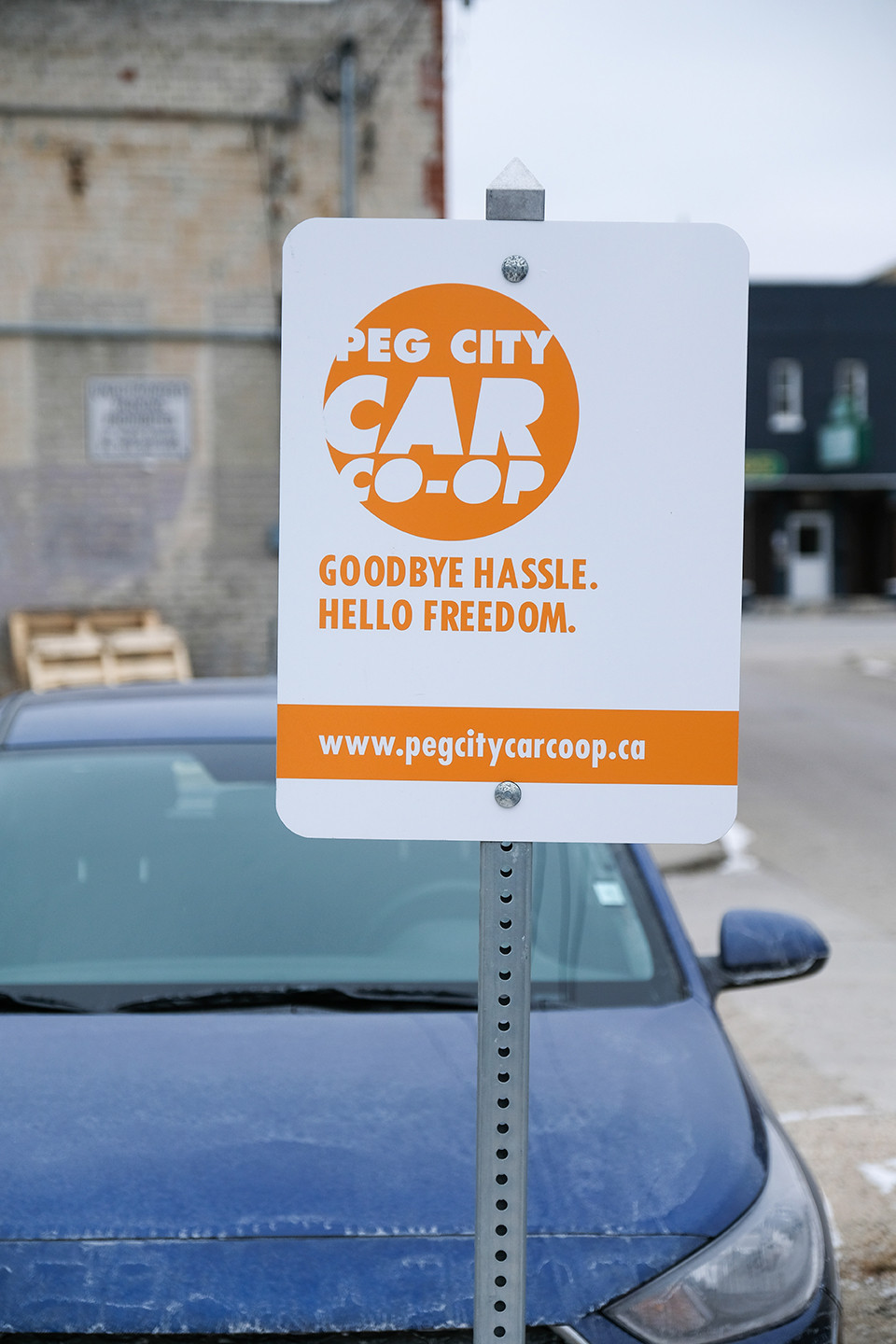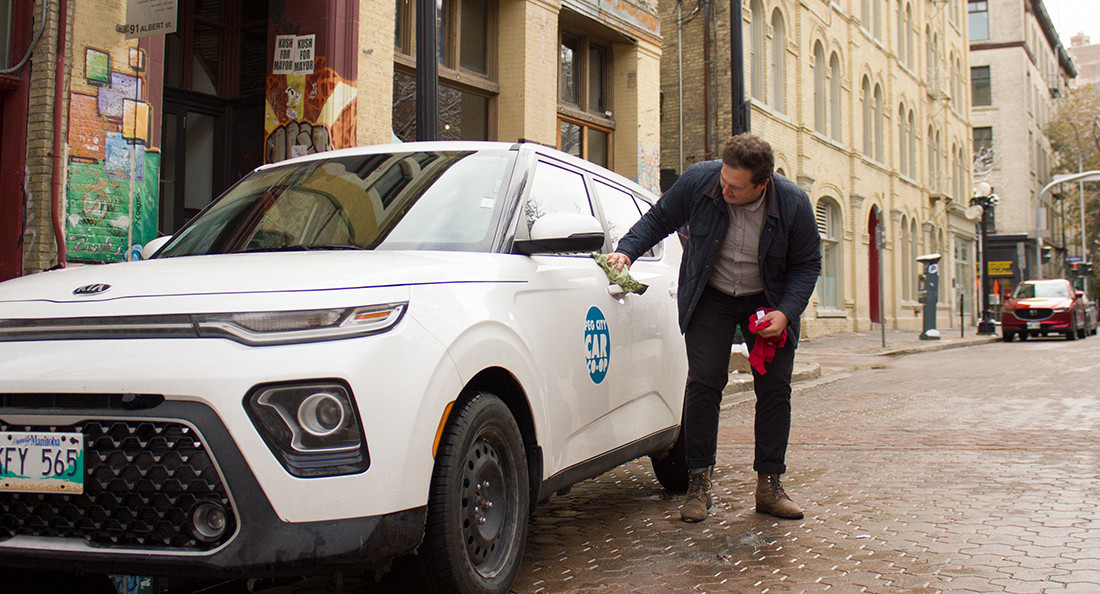Working together
Co-operative businesses show resilience through shared values
Earlier this fall, Mountain Equipment Co-op (MEC) announced its sale to private investor Kingswood Capital Management, causing outrage among members. Despite having more than 5 million members – who did not get to vote on the deal – Canada’s largest consumer co-op was unable to avoid financial problems related to “slow sale, inventory backups, supply chain problems and ever-increasing online competition,” according to a CBC article.
The problem with MEC didn’t stem wholly from their financial woes. It had a lot more to do with a lack of concern for their members and the values held by co-operative enterprises.
“Co-operatives tend to weather economic downturns far better than for-profit enterprises,” Simon Berge, associate professor, business chair of Co-operative Enterprises and director of the research centre on Co-operative Enterprises at the University of Winnipeg, says.

“Co-ops in the basic necessity area: food, clothing, housing aren't seeing the same pressures that for-profit operations are in the economic downturn.”—Simon Berge, associate professor, business chair of Co-operative Enterprises and director of the research centre on Co-operative Enterprises at the University of Winnipeg

“Co-ops that were in the entertainment sector, those who owned and managed theatres, in the food-services industry, for example, cafés, many of those co-operative enterprises have been hit hard by the pandemic.”—André Beaudry, executive director at Co-operatives and Mutuals Canada (CMC)
Recent challenges
“Co-ops in certain sectors ... have seen less demand for their products and services,” André Beaudry, executive director at Co-operatives and Mutuals Canada (CMC), says.
Beaudry says fuel sales are down, since people are travelling less during the COVID-19 pandemic.
“Co-ops that were in the entertainment sector, those who owned and managed theatres, in the food-services industry, for example, cafés, many of those co-operative enterprises have been hit hard by the pandemic,” he says.
On the other hand, anecdotal reports are that farming and wholesaling co-ops have been busy. Beaudry explains this has to do with supply and demand due to the pandemic.
“In terms of securing food supply, that has been a challenge for Canada through the pandemic,” he says.
According to Berge, businesses providing essential services do well in times of market failure.
“Co-ops in the basic necessity area: food, clothing, housing aren't seeing the same pressures that for-profit operations are in the economic downturn,” Berge says.
A reduction in demand for their product is not to blame for what happened with MEC. Beaudry says the demise of MEC began around 2012, due to two different factors.
“The approach to management, and those who were in those roles, had strong corporate backgrounds but less co-operative enterprise backgrounds. What you also saw was a shift in their board of directors,” he says.
Expansion was another factor.
“You also saw significant spending in the areas of physical infrastructure, and so there's a huge expansion in terms of new stores, and a huge diversification of product offerings,” Beaudry says.
If MEC had kept running their business like a co-operative enterprise, rather than focusing on profit, they likely would have done a few things differently – for instance, consulting members in the sale.
“Member engagement is hugely important, and selling a membership is not the values and principles that co-operatives were built on,” Beaudry says.
Pollock’s Hardware Co-op also faced financial difficulties in recent years, in part due to competition from big-box stores. Unlike MEC, it was due to Pollock’s member-elected interim board and approximately 3,500 members that they stayed in business.
The co-op actually managed to pay off their loan to the Jubilee Fund in June 2020, despite the ongoing pandemic.
“Co-ops are very resilient as a form of business,” Beaudry says. “We're fiercely proud of co-operatives across Canada for the work that they're doing.”

Pollock's Hardware Co-op on Main Street was saved from closure by its voting members in 2019.
Resilience
The average age of a co-op in Canada is 43.7 years, and 99.1 per cent of them are small- and medium-sized enterprises (SMEs). Beaudry says traditional businesses don’t have the same longevity: 31 to 36 per cent of non-co-op SMEs might reach 15 years.
Beaudry explains the resilience of co-ops comes from a number of factors.
“Being member-owned, being democratically operated, being autonomous and independent in the sense that it's the members who own the co-op and not a very small percentage of shareholders who can basically point the business in one specific direction,” he says.
Throughout the pandemic, co-ops have continued to be invested in their members, putting their community first in a number of ways. Beaudry says this community impact can happen through donations, and it “can involve employees being released from work to do good works to support their communities.”
“It's not just profit. There's people and planet in there. And so it's a very different approach,” Beaudry says.

"There’s actually quite a few people who are deciding to use our services during these times and for other financial reasons maybe actually using us over choosing to own a car.”— Philip Mikulec, operations manager at Peg City Car Co-op
Local businesses adapt
Philip Mikulec, operations manager at Peg City Car Co-op, says he has seen an increase in business over the past eight months. With people cancelling international travels in July and August, Mikulec says he saw an increased demand for car-sharing over the summer.
In the spring, Peg City Car Co-op had made the decision to put some cars into storage to focus their cleaning efforts on the remaining cars in their fleet. With the increase in demand in July, they added an additional eight cars and took the others out of storage.
While shareholders at Peg City Car Co-op require a $500 buy-in, Mikulec says there has not been a significant amount of members revoking shares due to recent financial issues.
“It’s been made up by the fact that there’s actually quite a few people who are deciding to use our service during these times and for other financial reasons maybe actually using us over choosing to own a car,” he says.
Credit unions across Manitoba reduced the number of branches they kept open in the spring in an effort to reduce transmission risk and maintain a higher level of sanitization in the branches that remained open.
Nedzad Brkic, director of planning, research and knowledge transfer at Credit Union Central of Manitoba, says credit unions catered to their members by offering mortgage deferrals.
“If you are paying a mortgage, and you are losing your job, it's not a perfect situation,” he says.
As well, whether a housing co-op works with a bank or whether they’re partnered with a credit union will make a difference in the options they can offer their members, Berge notes.
“If the co-op, the housing co-op, relied on a traditional bank, the traditional bank is going to say, ‘pay your bills. Pay your loan. Don't care about COVID,’” he says.
When a housing co-op works with a credit union, the shared values mean there is often less financial stress.
“You have two co-operatives basically saying ‘Everyone's struggling. Let's find a way to reduce the stress on the housing co-op, ensure their goal, which is to maintain people in their homes, is met, as opposed to the goal of profit, right?’” Berge says.
Brkic explains the needs of the credit union depend on the needs of the community.
“If you have an affluent neighbourhood ... then you have people who need less, and you need less to extend yourself,” he says.

A Peg City Car Co-op pickup location near Pollock's Hardware on Main Street
Keeping it local
Since they are anchored in communities, co-ops keep more profit in the local economy.
“What we see is, on average, 90 per cent of what people spend on their private automobile leaves the local market. And by car-sharing, what we find is that people spend about 50 to 75 per cent less of their income on vehicle transport through us, which just means that those additional dollars just hopefully have a bigger chance of landing somewhere in the economy,” Mikulec says.
As seen with Pollock’s, the investment of members into their co-op is what keeps the business alive.
“As a member, you have a sense of ownership, because you are a member-owner. As such, you want to see the co-op succeed,” Berge says.
It’s more than that, though.
“Co-ops typically develop in areas where there's market failure, where goods and services aren't being provided by the for-profit sector,” Berge says.
He explains that this is why co-ops tend to show up in food deserts.
Because co-ops often arise from a need within a community, the community tends to be invested to keep it in business. Times of economic downturn make this abundantly clear.
“The benefits (were) there before the pandemic, and I think they’re just accentuated and made even clearer when you’re dealing with uncertain financial times,” Mikulec says.
An example he gives is the costs of owning a car and paying for parking downtown, as well as maintenance, insurance and fuel.
“Car-sharing gives you the opportunity to have access to a car without all of those fixed costs that you have to pay no matter how much you use the car,” he says.
Berge says co-ops tend to be more transparent than for-profit businesses when it comes to their needs, and what the members need.
“They're essentially the same entity. A member is an owner of the organization. They want to know if the organization is doing well, if it's struggling, where is it struggling, how can it help, (and ask) ‘how, as a member, can I help that co-op survive?’” Berge says.

A Peg City Car Co-op sign
From surviving to thriving
While co-operatives are doing well now, one of the factors in MEC’s demise was that, according to Beaudry, members are not taken into consideration under the Companies’ Creditors Arrangement Act (CCAA), which he explains “provides protection for a business when it's at the point of insolvency, and its creditors are asking to be paid.”
To keep what happened with MEC from happening again, there are a number of things members can do.
“One of the things that CMC is advocating for on a weekly basis with elected officials in Ottawa is to make sure that every program that comes out of Ottawa to support traditional businesses is there to support co-operative enterprises,” Beaudry says.
He suggests that members can reach out to their MLA or even contact CMC if they notice that traditional businesses are being favored in provincial or federal programs.
“On behalf of CMC, we're incredibly proud of the co-operatives in Manitoba and across Canada for the way they are engaging their members, for the time and focus that they're putting into giving back to their communities, supporting their communities,” Beaudry says.
“If there's a business model in Canada that has realized for a long time that we're all in this together, it's been co-operatives,” Beaudry says.
Or, as Brkic says: “I think that co-operation is what can take us out of this trouble.”
Published in Volume 75, Number 10 of The Uniter (November 19, 2020)








